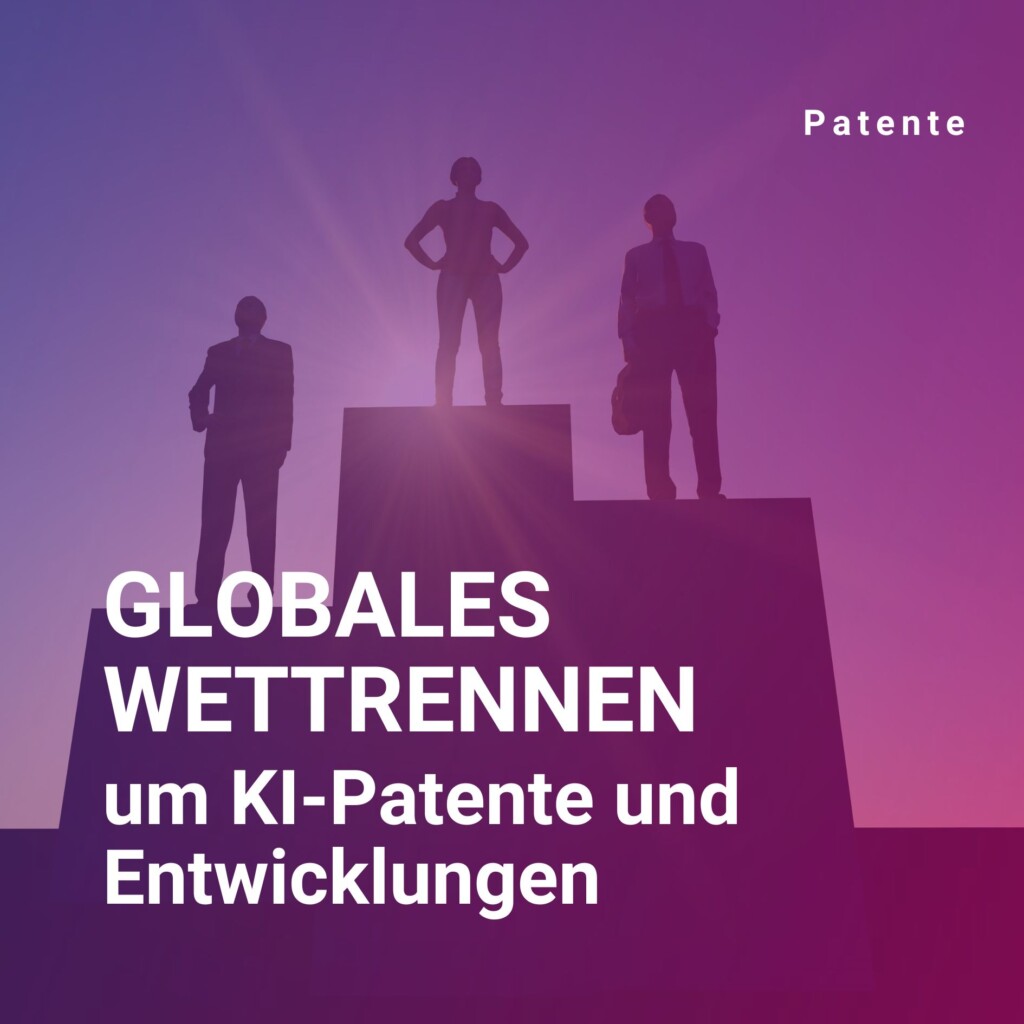Is your invention unique?
Let's find out: Patent Search
In order to profit sustainably from your invention, it is important to protect it from imitators. Whether you have invented a high-tech product or an everyday object: You can protect your invention with a patent. However, a prerequisite for the grant of a patent is that your invention is new and not too similar to known products. With a comprehensive patent search you will find out if you are the first with this idea.
Over 550 companies already trust white ip
Your advantages with white ip
- Personal consultation (uncomplicated and reliable)
- Initial assessment
- Fixed price offer
- Access to fee-based patent search databases
- Competence at the highest level
- Economic evaluation of your invention
- Access to fee-based patent search databases
- Competence at the highest level
- Economic evaluation of your invention
Your idea is your success!
Initial meeting
Personal preliminary meeting in combination with an initial assessment and the start of our cooperation
Set strategy
Together with you, we define the relevant features for the patent search of your invention and create a qualified search strategy.
Patent search
We research the relevant state of the art and provide you with an overview of the patent landscape in a clear and comprehensible presentation.
Recommendation for action
Patent search via a reliable and experienced patent attorney with scientific background, access to modern research tools as well as literature databases.
Optimization and further development
If you wish, we can support you in optimizing your project and not only suggest solutions but also help you to further develop your inventive idea.
Patent search
In order to have your invention successfully protected as a patent, it must meet the basic requirements for patenting. The most important criteria are “novelty” and “inventive step”. These are measured against the entire prior art currently known worldwide, so that not enough attention can be paid to the patent search in the run-up to an application. However, the so-called state of the art includes not only patents that have already been applied for, but also other industrial property rights, articles in magazines, blog contributions or offers on the Internet. Even one-time presentations to an audience can be counted as prior art.
With a structured and systematic patent search, you can obtain a far-reaching overview of the known prior art and, based on this, distinguish your invention as well as possible from existing approaches to solutions even before filing an application. This is not only relevant for the preparation and filing of a patent application, but also protects you from unintentional and undesired infringements of intellectual property rights, which may result in claims for damages and injunctive relief.
Why is a patent search recommended?
A targeted patent search offers you the following advantages:
- You will get an overview of comparable products and intellectual property rights of competitors.
- You can create an application strategy based on the search results.
- You accelerate the application as well as the granting procedure, because you can better distinguish yourself from the state of the art with a search.
- You minimize the risk of your patent application being rejected, thereby reducing the overall cost of the application process.
- You avoid infringement and collision with older intellectual property rights, so that expensive litigation and claims for damages do not arise.
An upstream and well-executed patent search minimizes the risk of not meeting the patentability requirements before you enter into a complex and cost-intensive patent granting procedure with your project. With a patent search, you can also avoid costly patent infringement proceedings based on existing patents.
Searching patent specifications is therefore an indispensable requirement and increases the likelihood of grant. The procedure for a thorough search therefore requires an investment of time that should not be underestimated, as well as the precise knowledge of the specific search parameters with which the features of your invention are to be compared individually and in their entirety with the content of already known publications.
When should you conduct a patent search?
A patent search can be carried out at different points in the innovation and invention process:
Before and during the development phase of your invention: It is advisable to conduct a patent search during the planning phase or at least before your invention is completed. This gives you an overview of the current industry situation, enabling you not only to prevent the expenditure of unnecessary development costs at an early stage, but also to develop a targeted modification or an alternative solution approach.
Immediately before filing a patent application: In order to rule out the possibility that others have already filed a patent application for your invention during the development phase or that novelty-destroying publications could conflict with your own application, you should conduct a patent search after the development phase and immediately before the planned patenting. This allows you to differentiate your invention from pre-published solutions right from the start.
For a grant of your patent: The patent search is a mandatory part of the patent examination procedure for obtaining a granted patent. In the European patent granting procedure before the EPO, the patent search is mandatory from the beginning and is also made available to the public as a search report in the course of the publication of the patent application. Unlike a European patent application, you have seven years from the filing date of a German patent to request an ex officio search. If you request the examination of the patent application with which the grant of a patent can be sought, the official search is a mandatory component and at the same time forms the basis of the German grant procedure.
After further development of the invention: Have you further developed your invention, optimized your product as a result of market research, or adapted it to the current state of the art? Then we recommend that you carry out a patent search here as well. Thus, you check the current innovativeness of your patent as well as the patentability of your invention from the point of view of competitive markets and constantly growing competition.
Before a planned product launch: Before you enter the market with your product, it is advisable to conduct a new search, because often a considerable amount of time elapses between the start of development and the product launch, during which the patent landscape may well have changed. In this case, a so-called freedom-to-operate research is recommended in order to be able to clearly evaluate your freedom of action on the market.
Your invention as a trade secret: You may have decided not to apply for a patent at all. This can be considered, for example, if you want to keep a procedure secret. This is because a patent application, including its contents, is published after 18 months. With a (technical) patent, however, you only obtain protection for 20 years, not beyond. So it may well be worth not applying for a patent to keep your competitors in the dark about how you carry out their secret process. Since your competitors do not (or cannot) know about your proceedings and may be seeking a patent of their own, you should nevertheless carry out a search in order to avoid being warned by your competitors later on or being asked to pay high damages. Therefore, even if you decide to keep your invention secret as an in-house invention, you should conduct a patent search at regular intervals, because your competitors are not inactive. A patent search provides you with a timely overview of new patent applications filed by your competitors.
What do I need to consider when doing a patent search?
The challenge of a thorough patent search lies especially in filtering the multitude of results. To assess whether you can get your invention protected, you should ask yourself the following questions about your results:
- Do I learn from keywords and entries in patent literature that my invention is new and overcomes prior art?
- What information have I learned about my competitors' property rights and can these possibly be challenged?
- Have I learned anything about my competitors' products and is it even worth entering this market with my invention?
- Have I used keywords that are directly related to my invention and additionally searched for synonyms and paraphrases?
- Have I used the keywords in other languages?
Example: You are looking for a bicycle with luggage rack and bell. To get the largest number of hits, you would need to search for "bicycle", "luggage rack" and "bell" in, for example, English, German, Chinese, Japanese, Korean. In addition, you would have to observe different terminology. For example, instead of "bicycle", "two-wheeler" could also be considered. Or instead of a "bell", the patent specification could also describe a "signal generator". You can see that as the number of features to search increases, so does the number of possible permutations, and thus the effort required.
For the patent search and evaluation of the results, search tools are therefore often helpful and necessary, which can usually only be provided by paid databases or professional support.
Public databases
DEPATISnet
The German Patent Information System (DEPATIS) is the search system for patent documents of the German Patent and Trademark Office (DPMA). Access is provided via the electronic DEPATISnet. DEPATISnet contains data on more than 100 million patent documents.
Espacenet
Espacenet is the search platform of the European Patent Office (EPO) and contains data on more than 120 million national and international patent documents. You can also use the supporting register information to determine whether a patent has been granted and whether it is still in force.
PATENTSCOPE
The PATENTSCOPE database offers access not only to international patent applications in full text format but also to patent documents of the participating national and regional patent offices. PATENSCOPE contains data on more than 97 million patent documents.
However, a high error rate should be expected when conducting independent research. One of the reasons for this is that search terms must be entered as they are found in the patent specifications, so that a search using German or English terms will not return Chinese or Japanese patent applications as results unless the terms searched for appear in an (English) abstract. As you can see, independent queries in various databases are no substitute for professional research by an expert.
Procedure
There are a total of four procedures for researching inventions or having them researched:
Databases
Independent free online research via national databases.
Advantage:
- free of charge
Disadvantages:
- high error rate
- high time requirement
Patent Offices
Paid patent research via the national or regional patent offices.
Search requests are carried out by the national or regional patent offices (e.g. DPMA, EPO) by means of an examination request and the result is communicated to the applicant or the applicant legal entity in a search report (Sec. 43 (7) Patent Law). A search fee of 300 euros is due at the DPMA (costs of the patent search).
Advantage:
- professional research
Disadvantages:
- The search by the DPMA or EPO is only possible with an already filed patent application. Amendments to the patent application are then no longer possible.
- Due to the workload of an examiner, it often takes longer than 6 months to review an application.
External service providers
High-priced, professional service providers offering patent search.
Several professional service providers exist on the market for this purpose. Individual patent offices, such as the Nordic Patent Institute (NPI) or the Swiss Institute of Intellectual Property (IGE), also offer patent searches for a fee.
Advantage:
- professional research
Disadvantage:
- Costs: Service providers who exclusively perform professional searches must - in contrast to a patent attorney - cover the costs for the professional search tools exclusively through the search orders obtained, which makes the searches more expensive.
Patent attorney
Reliable, competent and with many years of experience
Patent search via a reliable and competent patent attorney with many years of experience and access to various literature databases.
The advantages of hiring a patent attorney to personally assist you with the search are obvious. In addition to detailed research with suggestions for differentiation from the state of the art, you will receive professional and personal support at a fair and transparent price.
Advantages:
- Personal, professional and individual support by a patent attorney
- Detailed research with recommendations for differentiation from the known prior art
- Fair and transparent costs
Range of services
Patent search for prior art
With the help of access to professional and fee-based patent databases, we take over the time-consuming search for prior publications that could stand in the way of your patent application and support you in distinguishing it from the prior art in the individual phases of the development of your invention.
Patent search for nullity actions
Do you want to get rid of a patent that has been granted or is in the process of being granted by a competitor? We are happy to assist you with a patent search in the course of preparing an opposition or nullity action to bring down a patent that is standing in your way.
White spot analysis
Not sure yet in what direction to go? Here, a white spot analysis could help you, with the help of which we identify the prior art that is free for you, within the limits of which you could be inventive.
Freedom-To-Operate Analysis (FTO)
You would like to know which granted property rights stand in the way of your project? We identify IP rights in force to reduce the risk of an infringement action against you.
Patent families and legal statuses
Are you interested in knowing in which countries a patent has been granted and in which you would have the opportunity to conquer the market, even without a patent? For this purpose we offer the identification of patent families and their legal status.
Patent monitoring
You want to know in which direction your competitors are developing? For this purpose, it is advisable to carry out patent monitoring, with which we inform you about the current status and trends of other market participants, so that you can react in time. Continuous patent monitoring is a good complement to upstream research, because your competitors are also monitoring the market - and you.
Of course, you can also combine individual modules of our range of services as required. In close consultation, we jointly determine the range of services you require. The search report you receive from us contains a
- intuitive overview of the found state of the art
- a clear recommendation for action
- suggestions on how to distinguish your invention from already existing or expired property rights.
Of course, we treat all your information strictly confidential.
Your patent opinion
Validity/Invalidity Search
- Study of the relevant documents submitted by the client
- Basic search for the state of the art and/or relevant documents
- Study of the file history (including study of the state of the art cited therein).
- Personal consultation for open questions
- Research and evaluation of current case law
- Preparation of a legal opinion on validity or invalidity
- Instructions on how to proceed (e.g. filing opposition, action for annulment, new application)
- Revision of the legal opinion in consultation with the client
Patentability Search and Report
- Study of the relevant documents submitted by the client
- Basic search for the state of the art and/or relevant documents
- Personal consultation for open questions
- Research and evaluation of current case law
- Preparation of a legal opinion on patentability
- Notes on further procedure (e.g. further tests required)
- Revision of the legal opinion in consultation with the client
Injury report
- Study of the relevant documents submitted by the client
- Personal consultation for open questions
- Research and evaluation of current case law
- Preparation of a legal opinion on possible collisions, including identical and equivalent violations
- Instructions on how to proceed further (e.g. production stop, opposition or nullity action based on prior art searches and/or relevant documents, if necessary).
- Revision of the legal opinion in consultation with the client

white ip | Patent & Legal is law firm specialized in German and international patent law in the technical fields of pharmaceuticals, life sciences, chemistry, semiconductor, electrical and mechanical engineering, computer science, chemistry, semiconductor, information technology, renewable energies and sustainability.
Speak to our experts

Dr. Leopold Gruner
white ip | Patent & Legal
Königstraße 7 | 01097 Dresden

Dipl.-Ing. Sophia Falk
white ip | Patent & Legal
Königstraße 7 | 01097 Dresden

Dr. Michael Geiger
white ip | Patent & Legal
Königstraße 7 | 01097 Dresden

Dr. Tristan Schuh
white ip | Patent & Legal
Königstraße 7 | 01097 Dresden



























